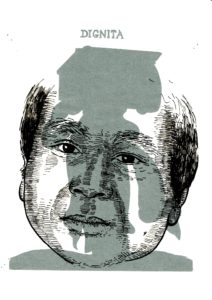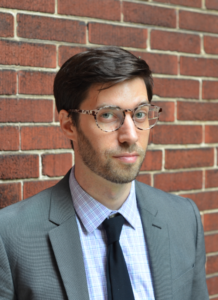Francis Fukuyama ~ Identiteit. Waardigheid, ressentiment en identiteitspolitiek
Mensen hechten aan hun waardigheid stelde Francis Fukuyama in zijn invloedrijke boek Het einde van de geschiedenis. In ‘Identiteit. Waardigheid, ressentiment en identiteitspolitiek’ verklaart hij de huidige tijd vanuit diezelfde behoefte: erkenning van waardigheid.
Fukuyama stelt dat het moderne identiteitsconcept drie verschillende verschijnselen verenigt. Als eerste thymos, een universeel aspect van de menselijke persoonlijkheid dat naar erkenning hunkert. Als tweede het onderscheid tussen het innerlijke en het uiterlijke zelf boven de externe samenleving. En als derde een evaluerend idee van waardigheid: niet alleen een beperkte klasse heeft recht op erkenning, maar iedereen, waardoor het een politiek project is geworden.
Vroeger streefde de liberale democratie naar universele erkenning van burgerschap met onvervreemdbare rechten. In de negentiende eeuw gingen de opvattingen met betrekking tot waardigheid in de richting van een liberaal individualisme dat ingebed zou worden in de politieke rechten van moderne liberale democratieën en in de richting van collectieve identiteiten die door een natie of godsdienst gedefinieerd konden worden.
De kenmerken van de hedendaagse wereldpolitiek is dat de dynamische nieuwe krachten die haar bepalen nationalistische of religieuze partijen zijn, de twee gezichten van identiteitspolitiek, en niet op klasse gebaseerde linkse en rechtse partijen die zo prominent waren in de politiek van de twintigste eeuw. Het probleem met de huidige linkse partijen zijn de specifieke identiteitsvormen die zij steeds meer zijn gaan koesteren, aldus Fukuyama. In plaats van solidariteit te ontwikkelen rond omvangrijke collectieven zoals arbeidsklassen, hebben zij zich geconcentreerd op steeds kleinere groepen die op een bepaalde manier zijn gemarginaliseerd. Nu heeft identiteitspolitiek op basis van religie, ras, etniciteit of gender de overhand. Read more
Colin Marshall ~ Roald Dahl, Who Lost His Daughter To Measles, Writes A Heartbreaking Letter About Vaccinations: “It Is Almost A Crime To Allow Your Child To Go Unimmunised”
![]() Generations of us know Roald Dahl as, first and foremost, the author of popular children’s novels like The BFG, The Witches, Charlie and the Chocolate Factory (that book of the “subversive” lost chapter), and James and the Giant Peach. We remember reading those with great delight, and some of us even made it into the rumored literary territory of his “stories for grown-ups.” But few of us, at least if we grew up in the past few decades, will have familiarized ourselves with all the purposes to which Dahl put his pen. Like many fine writers, Dahl always drew something from his personal experience, and few personal experiences could have had as much impact as the sudden death of his measles-stricken seven-year-old daughter Olivia in 1962. A chapter of Donald Sturrock’s biography Storyteller: The Life of Roald Dahl, excerpted at The Telegraph, tells of both the event itself and Dahl’s stoic, writerly (according to some, perhaps too stoic and too writerly) way of handling it.
Generations of us know Roald Dahl as, first and foremost, the author of popular children’s novels like The BFG, The Witches, Charlie and the Chocolate Factory (that book of the “subversive” lost chapter), and James and the Giant Peach. We remember reading those with great delight, and some of us even made it into the rumored literary territory of his “stories for grown-ups.” But few of us, at least if we grew up in the past few decades, will have familiarized ourselves with all the purposes to which Dahl put his pen. Like many fine writers, Dahl always drew something from his personal experience, and few personal experiences could have had as much impact as the sudden death of his measles-stricken seven-year-old daughter Olivia in 1962. A chapter of Donald Sturrock’s biography Storyteller: The Life of Roald Dahl, excerpted at The Telegraph, tells of both the event itself and Dahl’s stoic, writerly (according to some, perhaps too stoic and too writerly) way of handling it.
But good did come out of Dahl’s response to the tragedy. In 1986, he wrote a leaflet for the Sandwell Health Authority entitled Measles: A Dangerous Illness, which tells Olivia’s story and provides a swift and well-supported argument for universal vaccination against the disease:
Olivia, my eldest daughter, caught measles when she was seven years old. As the illness took its usual course I can remember reading to her often in bed and not feeling particularly alarmed about it. Then one morning, when she was well on the road to recovery, I was sitting on her bed showing her how to fashion little animals out of coloured pipe-cleaners, and when it came to her turn to make one herself, I noticed that her fingers and her mind were not working together and she couldn’t do anything.
Read more: http://www.openculture.com/roald-dahl-it-really-is-almost-a-crime
Freedom On The Net 2018
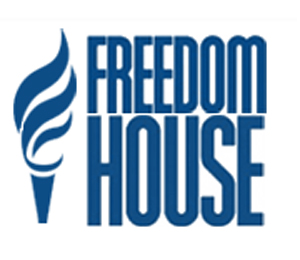 Fake news, data collection, and the challenge to democracy
Fake news, data collection, and the challenge to democracy
Governments around the world are tightening control over citizens’ data and using claims of “fake news” to suppress dissent, eroding trust in the internet as well as the foundations of democracy, according to Freedom on the Net 2018.
At the same time, the regime in China has become more brazen in providing like-minded governments with technology and training that enable them to control their own citizens.
“Democracies are struggling in the digital age, while China is exporting its model of censorship and surveillance to control information both inside and outside its borders,” said Michael J. Abramowitz, president of Freedom House.
These trends led global internet freedom to decline for the eighth consecutive year in 2018.
“This year has proved that the internet can be used to disrupt democracies as surely as it can destabilize dictatorships,” said Adrian Shahbaz, Freedom House’s research director for technology and democracy. “Online propaganda and disinformation have increasingly poisoned the digital sphere, while the unbridled collection of personal data is breaking down traditional notions of privacy.”
Key findings from Freedom on the Net 2018:
– Declines outnumber gains for the eighth consecutive year. Out of the 65 countries assessed in Freedom on the Net, 26 experienced a deterioration in internet freedom. Almost half of all declines were related to elections.
– China trains the world in digital authoritarianism: Chinese officials held trainings and seminars on new media or information management with representatives from 36 out of the 65 countries assessed by Freedom on the Net.
– Internet freedom declined in the United States.
– Citing fake news, governments curbed online dissent: At least 17 countries approved or proposed laws that would restrict online media in the name of fighting “fake news” and online manipulation.
– Authorities demand control over personal data: Governments in 18 countries increased surveillance, often eschewing independent oversight and weakening encryption in order to gain unfettered access to data.
Read more – Full Report: https://freedomhouse.org/freedom-net-2018
Trump Wants To Maintain US Empire But Without The Alliances
During the U.S. invasion of Iraq, even more reluctant scholars on both ends of the political spectrum were finally forced to acknowledge that the United States is an empire and that it has been acting as one since the end of World War II. Of course, there was a natural disagreement among them as to whether the U.S. was a different sort of an empire from those that had dominated world politics in the past, with conservative thinkers like Niall Ferguson arguing that the U.S is essentially a benign empire.
Yet, as Daniel Immerwahr, associate professor of history at Northwestern University, reminds us in his pathbreaking book, How to Hide an Empire, U.S. imperialism was alive and kicking throughout the 19th century. In fact, the United States was an empire from the very beginning of the founding of the nation, although this fact has never been part of standard educational narratives about U.S. history and foreign policy.
Meanwhile Donald Trump’s fetishization of the military is a reflection of the way imperial logic has been deeply ingrained into the mindset of most Americans, although Trump’s own vision, as Immerwahr argues, is one of a “fortress America” and of a U.S. foreign policy that relies less on alliances and on the presence of military bases across the globe.
In this exclusive Truthout interview, Immerwahr talks more about the contemporary shape of U.S. empire and how it has shifted under Trump.
C.J. Polychroniou: Over the last few decades, there has been an ongoing debate among some scholars as to whether the United States became an empire following the end of World War II. In your recently published book, titled How to Hide an Empire, you argue that the U.S. has always been an empire. Can you elaborate a bit on this claim?
Daniel Immerwahr: From the first day the United States received its independence from Great Britain, the country was, in spite of its name, not a union of states. It was an amalgam of states and territories. And for most of its history, the United States has had overseas territories. Add to that the hundreds of foreign military bases currently under U.S. control. There are lots of things you might mean by empire — you might refer to a commercial empire, an empire of pop culture. But by the strictly territorial definition, which understands empire to mean territories and outposts, the United States has unambiguously been an empire and remains one today.
This isn’t just a minor fact. The overseas territories have contained millions (as they do today). In 1940, one in eight people who lived in the United States lived not in the states but in the territories. More people in the country were colonized than were Black, more people in the country were colonized than were immigrants. That’s how big the empire was. It’s not just that the overseas parts of the country have accounted for a lot of its land and population. They’ve also been important to its past. The overseas territory of the United States has consistently been on the front lines of its history. Read more
Europeana Blog
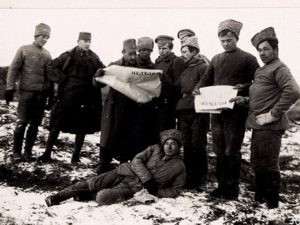 On this blog, discover stories and content from Europeana Collections, which provides access to over 50 million digitised items – books, artworks, recordings and more.
On this blog, discover stories and content from Europeana Collections, which provides access to over 50 million digitised items – books, artworks, recordings and more.
Europeana works with thousands of European archives, libraries and museums to share cultural heritage for enjoyment, education and research.
Europeana is an initiative of the European Union, financed by the European Union’s Connecting Europe Facility and European Union Member States. The Europeana services, including this website, are operated by a consortium led by the Europeana Foundation under a service contract with the European Commission.
The European Commission does not guarantee the accuracy of the information and accepts no responsibility or liability whatsoever with regard to the information on this website. Neither the European Commission, nor any person acting on the European Commission’s behalf, is responsible or liable for the accuracy or use of the information on this website.
Go to: https://www.europeana.eu/portal/en
JSTOR.org
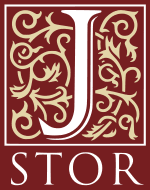 JSTOR provides access to more than 12 million academic journal articles, books, and primary sources in 75 disciplines.
JSTOR provides access to more than 12 million academic journal articles, books, and primary sources in 75 disciplines.
We help you explore a wide range of scholarly content through a powerful research and teaching platform. We collaborate with the academic community to help libraries connect students and faculty to vital content while lowering costs and increasing shelf space, provide independent researchers with free and low-cost access to scholarship, and help publishers reach new audiences and preserve their content for future generations.
JSTOR is part of ITHAKA, a not-for-profit organization that also includes Artstor, Ithaka S+R, and Portico.
Go to: https://about.jstor.org/
